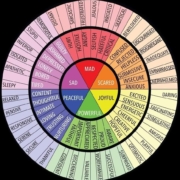I was parked on the street in front of a cute little bungalow about to meet my real estate agent one fine summer afternoon. We were scouting out homes for a pending move my husband and I had decided to make in an effort to downsize. I was just swinging open the driver’s side car door when I saw a blue blur of a car race past me, ripping it right off the hinges as it went. Had I been swinging my legs to get out, they would have been gone too, along with the car door. Fortunately, that did not happen.
Posts
Have you ever thought about this? Do you over-explain something when you are saying no to a request, or to an intrusive question? Did you know that you do not have to explain your thoughts to someone simply because they asked? And that the tendency to do this typically occurs with someone we care about, or someone that has power over us? Learning this is crucial to your ability to set a clear and healthy boundary.
If you have anxiety sensitivity, here are 10 factors that contribute to “Sticky Thoughts.” Sticky thoughts are the ones you just can’t shake loose. Sticky thoughts predispose your mind to anxiety and hyper-vigilance. They tend to keep you stuck in your own personal anxiety loop that is both unproductive and self-shaming. That is why learning to identify and talk back to them is critical to your good mental well being.

Feeling stuck?
The 10 Sticky Thoughts Factors
- Sleep deprivation/insomnia
- Drinking alcohol
- [Some] OTC medications
- Steroids of any type, asthma meds
- Your genetic inheritance is a factor
- Any illness, a cold, for example
- Caffeine or sugar intake—notice what affects your body
- A natural cycle upon wakening that many feel as a sort of dread of the day, which lessens over the course of the day
- Hormone fluctuations
- Hyper-vigilance, or monitoring of the content of the mind is the most prevalent factor of all.
BONUS ROUND!!! Social Media! Devices! They are the trigger for so many of our sticky thoughts.
When you are stress and need some instant ways to connect to your immediate surroundings, test out a few of these 25 ways to get grounded fast. Grounding tips help you connect to the here-and-now when it feels like things are out of control.
I thought that today would be a good one to round up a few simple facts about feelings, so here goes. This image is a feelings wheel that can expand your emotional vocabulary. The purpose of feelings and emotions is to get you to act. However, sometimes we don’t choose the best course of action.
A concerned mother wrote and asked me for suggestions for her son who was in his first semester at college in a different state. She was feeling helpless from afar, and wanted to know how to advise him about his long-standing social anxiety and depression, which had flared in his new environment. This is what I told her.
Dear Worried Mom,
What better time than the start of a new year to make change that can positively affect the rest of your life? Let’s assume you have made that brave decision, and talk therapy is part of your plan. What do you expect when you are expecting talk therapy? If you want to know how I do it, read on.
People that have never experienced talk therapy often feel a tad apprehensive about getting started. There are lots of reasons. Some wonder if it will do any good at all, and others have the odd fear they won’t be able to ‘do it right.’ Some people simply don’t know how it proceeds or what is expected of them, and they are anxious about that. Still others believe they will receive all the instructions from the therapist about how to change and be on their way—with no real understanding of the courage, persistence, and work that real change takes. And some believe a pill is the answer.
I don’t actually place too much stock in New Year’s resolutions. In the past when I have, they are usually too big or not sustainable, and by January 31, I’m like meh. This sucks and I don’t want to do it any more. So then I let the unmet goals go until the angst over not getting enough exercise or being unable to wear the clothes that are two sizes past creep up and make me feel defeated again. This is the hamster wheel of my own anxiety spinning around in my head. It can turn into a bad case of the “What ifs” if I don’t follow my own advice. You know, doctor, heal thyself. So I make sure set goals I can achieve, I get competent help, and I pay attention to self care. All of that allows me to do what I do best, which is to help you tame your anxiety. But if you are feeling a little shy about seeking help, or unsure of what to expect in therapy, please let me demystify it for you. Read more
People who know me understand how I define anxiety. One version is rumination. This is when you are focused on the past, on memories about something that occurred. Perhaps it was a conversation that went wrong, or you are worried about someone’s opinion of you in those circumstances. Or it is this…
PAGE RUTLEDGE, LCSW, CHt | Couples Counseling
Tel: 910-777-7243
Offices at:
5006 Randall Parkway (close to UNCW)
Wilmington, NC 28403
Free parking at office










